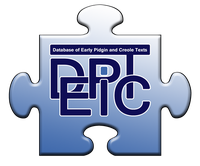On-going Research Projects
- Epicentres in World Englishes: empirical diachronic studies of present-day South Asian Englishes
-
This project (funded by the German Research Foundation: project number 456646144) dedicates itself to determining the extent to which short-term diachronic linguistic change in Anglophone South Asia comprising Bangladeshi, Indian, Maldivian, Nepali, Pakistani and Sri Lankan English is empirically and sociolinguistically reconcilable with a linguistic epicentre of the region. The concept of a linguistic epicentre accounts for linguistic commonalities of several varieties in a given region by suggesting that these shared linguistic structures originate in a model variety of the region – its linguistic epicentre – and subsequently permeate to neighbour varieties of the epicentre, which integrate and establish them. With a focus on South Asian Englishes, three research gaps motivate this project: a) the lack of multifactorial empirical research into South Asian Englishes, b) the lack of diachronic studies in World Englishes in general and South Asian Englishes in particular and c) the insufficient empirical research into linguistic epicentres. Relevant contributions to the closing of these research gaps will be devised with the help of a corpus environment consisting of short-term diachronic newspaper texts representing the six South Asian Englishes – as well as American and British English for control purposes. Short-term diachronic linguistic change will be studied at the structural interface between lexis and grammar, which is a central indicator for the development of postcolonial Englishes, by conducting multifactorial analyses of and devising statistical models for the alternations covering a) analytic vs. synthetic adjective comparison, b) mandative subjunctive vs. should construction, c) particle placement and d) genitives. These short-term diachronic structural observations will be complemented with sociolinguistic profiles of the individual South Asian Englishes – with a particular focus on determining their evolutionary status – and their connections with one another to ultimately offer an empirically and sociolinguistically reliable evaluation of the extent to which the notion of a linguistic epicentre explains short-term diachronic linguistic developments in South Asian Englishes.
Principal Investigator: Dr. Tobias Bernaisch and Prof. Dr. Stefan Th. Gries
For further information, please visit the project homepage on the DFG's GEPRIS website.
- Database of Early Pidgin and Creole Texts (DEPiCT)
-
The Database of Early Pidgin and Creole Texts (DEPiCT), funded by the German Science Foundation, assembles early attestations and descriptions of contact languages. The texts are annotated and made searchable online. This opens up new avenues for research: DEPiCT will be a standard reference database for historical linguistic studies on contact languages, both for individual languages as well as for comparative linguistic studies, and both from structural as well as from sociolinguistic perspectives. DEPiCT thus serves as an online backup and archive for posteriority, collecting and electronically saving data which at present is scattered among several researchers. It also offers a more complete overview and more comprehensive documentation of the development and history of individual contact languages. Furthermore, by allowing direct comparison between texts, DEPiCT makes it possible to evaluate the reliability of early sources. The comprehensive annotations allows for structural linguistic studies on grammaticalization paths as well as sociolinguistic and sociological studies on language use and attitudes in the early stages of contact languages.
Principal Investigator: Prof. Dr. Magnus Huber
Please visit the project website for more information.
- International Corpus of English: ICE-Ghana
-
The Ghanaian components of the International Corpus of English is based at the University of Giessen.
Please visit the official ICE websites of ICE-Ghana.

